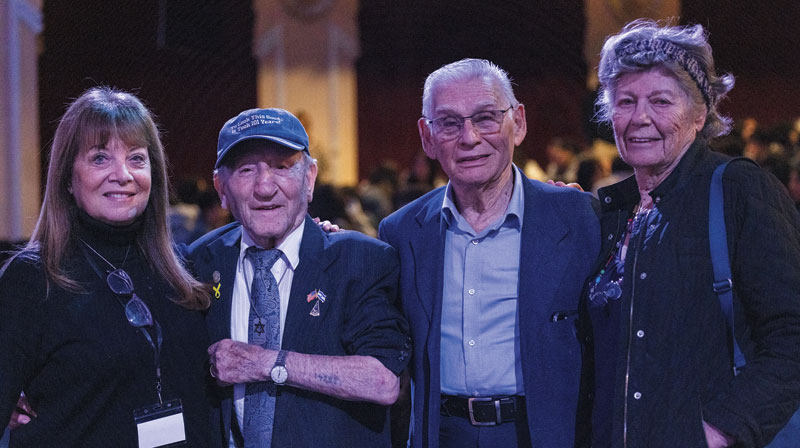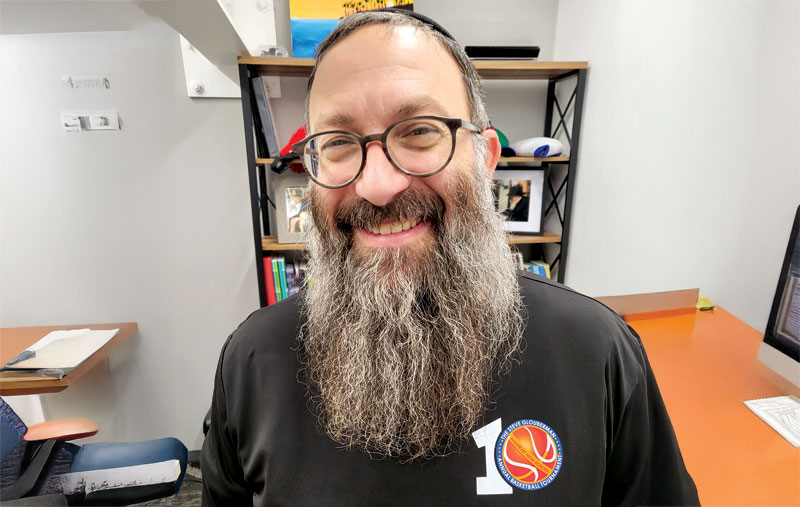
Mitch Chupak, director of development at the Jaffa Institute, beams when he discusses how the Jewish Community Foundation of Los Angeles has supported his organization since its early days as a small social services agency serving high-risk children in Jaffa. Today, the 35-year-old Jaffa Institute has expanded to 40 educational and social programs serving 6,000 children and teens in communities throughout Israel, including Bat Yam and Yehud.
On Dec. 8, the Foundation announced that the Jaffa Institute was among eight organizations to be awarded grants of up to $250,000, totaling $1.65 million, to be disbursed over three years. Chupak said the Jaffa Institute will use its $200,000 grant to expand career and educational opportunities for Ethiopian-Jewish teens at the organization’s Bet Shemesh Educational Center.
“Our overall goal is to integrate these teens into Israeli society as quickly as possible by providing them with educational opportunities and services, such as computer training and introductions to various corporations,” Chupak said.
The organization helps teens finish high school so they can enter the army like their Israeli peers, he said. Post-army, the Institute offers scholarships for university study. It also encourages students to participate in STEM-based programs in science, technology, engineering and math starting in seventh grade.
Tzohar, focused on bridging the gap between religious and secular Jews in Israel, will use its $250,000 grant to develop a new program for rabbis and to enhance an existing professional development program for community rabbis, said to Rabbi Shai Finkelstein, Tzohar’s director of rabbinic alliance and community engagement.
“Our new program will train an elite group of Modern Orthodox and Zionistic rabbis … to become prominent voices in the online world,” he said.
Other recipient programs of the annual Israel Grants for 2017 focused on Jewish identity include:
• BINA: The Jewish Movement for Social Change (Irgun Noar), one of the few non-Orthodox organizations to provide Israeli high school students with activities promoting Jewish identity, Jewish learning and Shabbat programs.
• HaShomer HaChadash, providing security and protection to Israel’s smaller, more vulnerable communities in the Negev and Galilee, while promoting agricultural and pioneering programs.
• Nitzanim/The Avi Chai Foundation, which will use its grant to grow from nine to 14 locations to expand on its programs to help Israeli Jews overcome their increasing sense of alienation from Judaism.
Economic development programs include the Jaffa Institute as well as:
• Educating for Excellence, which provides 150,000 children and youth in underprivileged Israeli communities with a support system to pursue greater educational and career opportunities.
• Machshava Tova, providing underprivileged populations in Israel greater access to technology and skill-building education in supportive environments.
• YEDID: The Association for Community Empowerment, promoting social justice in Israel through a national network of Citizen Rights Centers offering programs that empower Israelis to break the cycle of poverty.
“These annual Israel Grants support programs that endeavor to strengthen Jewish identity and advance economic development and self-sufficiency throughout the country,” said Elana Wien, vice president of the Jewish Community Foundation of Los Angeles’ Center for Designed Philanthropy.
“Our goal is to integrate these teens into Israeli society as quickly as possible.” — Mitch Chupak
The Foundation “effectively makes Los Angeles a partner in everything we’re trying to accomplish,” said Noga Brenner Samia, deputy director for Irgun Noar/BINA Youth Corps. “It is important to express our gratitude for the Foundation’s help in our pushing forward in the realm of Jewish identity education.”
Eli Gur, CEO of Nitzanim, said his organization aims to help a diverse group of Israeli Jews overcome their increasing sense of feeling estranged from Judaism or ignorant of their heritage.
“Nitzanim has neither a specific ideological approach nor a limited geographic scope as we build a network of municipalities throughout Israel,” said Gur, who described “a national partnership in which all participant communities uphold and support a social, cultural and educational Jewish-Israeli agenda that is inclusive, diverse and resonant.”






















 More news and opinions than at a Shabbat dinner, right in your inbox.
More news and opinions than at a Shabbat dinner, right in your inbox.